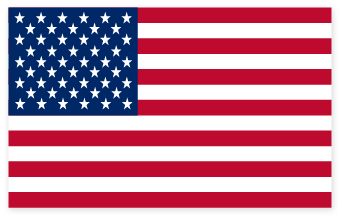If this happened in Chutz Laaretz then the dough is definitely permitted. Even if it happened in Eretz Yisrael, since the piece fell before, she called it Challah, even though she said the bracha, then the bits of dough that got left behind wasn’t called Challah, only that which was in her hand.
Explanation:
The Gemara in Bechorot 27a: Shmuel said Terumah (Challah) in Chutz laaretz is nullified with a majority of other ingredients in a mixture. Rabbah (who was Koehn) would nullify in Rov, majority, when he was Tameh, impure , and eat it.
The Yerushalmi Challah 4:4 says: R’ Ze’ira taught a Beratia said that even if the mixture is one to one(equal) as the Mishna says a Kohen can eat Challah with no Koehn on the same table. (Pnei Moshe explains that since he can eat other with a non-Kohen on the same table, we are not worried about a piece of Challah falling into his food since it became nullified.
There is an argument between the Bavli and the Yerushalmi, the Bavli says Challah needs a Rov and the Yerushalmi says even if it is equal
The Kesef Mishna (Bikkurim 5:12) The Bavli is discussing where one mixed it on purpose to nullify it then you need a Rov. If it got mixed accidentally then we need only equal measure.
The Bach (YLD 323asnwers: The Bavli is about a Kohen eating, so he needs Rov, but the Yerushalmi is talking about a non-Kohen (Zar) then you only need equal. The Shach asks, it seems that the Kohen eating is more stringent than non-Kohen, and this is not correct as Tosfot says in Bechorot 27a.
The Shach himself (323:10) answer that the Bavli is talking about Terumat Chu”l whereas the Yerushalmi is talking about Challat Chu”l.
The Radbaz says yes there is a machloket between the Bavli and Yerushalmi and the Rambam ruled like the Yerushalmi since the Mishna implies the Yerushalmi is correct. (4:8)
The Rishonim disagree in how much Challah is nullified.:
The Rambam (Terumot 13:11) writes: Terumat Chu”l is permitted to nullify it in Rov and to eat it while you are impure (for a Koehn) . In Hilchot Bikkurim (5:12) he writes: If there is a child Kohen to a Kohen who did Tevillah he is permitted to eat it with Zar (Non-Kohen) on one , since if it gets mixed it won’t forbid his food even if it got mixed equally.
The Rambam in Terumah ruled like the Bavli and in Bikkurim like the Yerushalmi, exactly like the Shach understood.
The Tosfot in Bechorot explains (27a) Shmuel who says Terumah is nullified in Rov is only for a Tameh Kohen not eating with a Zar because we need 101 times for the Zar to be able to eat it.
The Shulchan Aruch (323) rules: Chalat Chu”l which is permitted for a pure Kohen to eat together with a Zar at the same table since it doesn’t forbid in a mixture.
The Rema writes: There are those who argue and say it does forbid until 101 times if it is the same type, if not sixty times.
The Shulchan Aruch rules like the Rambam and the Rema is like the Tosfot. The Bet Hillel adds: if Challah falls inside a dish without sixty times of food to nullify the taste or into other bread which you need 101, it is enough for the taste to be nullified in Rov and the dish is permitted once Chalat Chutz Laaretz nowadays is only Rabbinic and the Rema didn’t rule like the Tosfot and therefore it’s a Safek Derabanan which we rule leniently Bdiavad. Even though later is says that Safek challah one is obligated to separate again, there it is talking about Chalat Eretz Yisrael which is from the Torah but Challat chu”l is not.
So, since it is Safek n din in Chalat Chu”l we can be lenient and the dough is permitted.
IF it was in Eretz Yisrael we must check if there is 101 times the leftover dough. If not w maybe lentil since she called it Challah only after it fell and she took it again therefore that which is leftover is OK to eat it is not Challah. and is permitted to eat.



